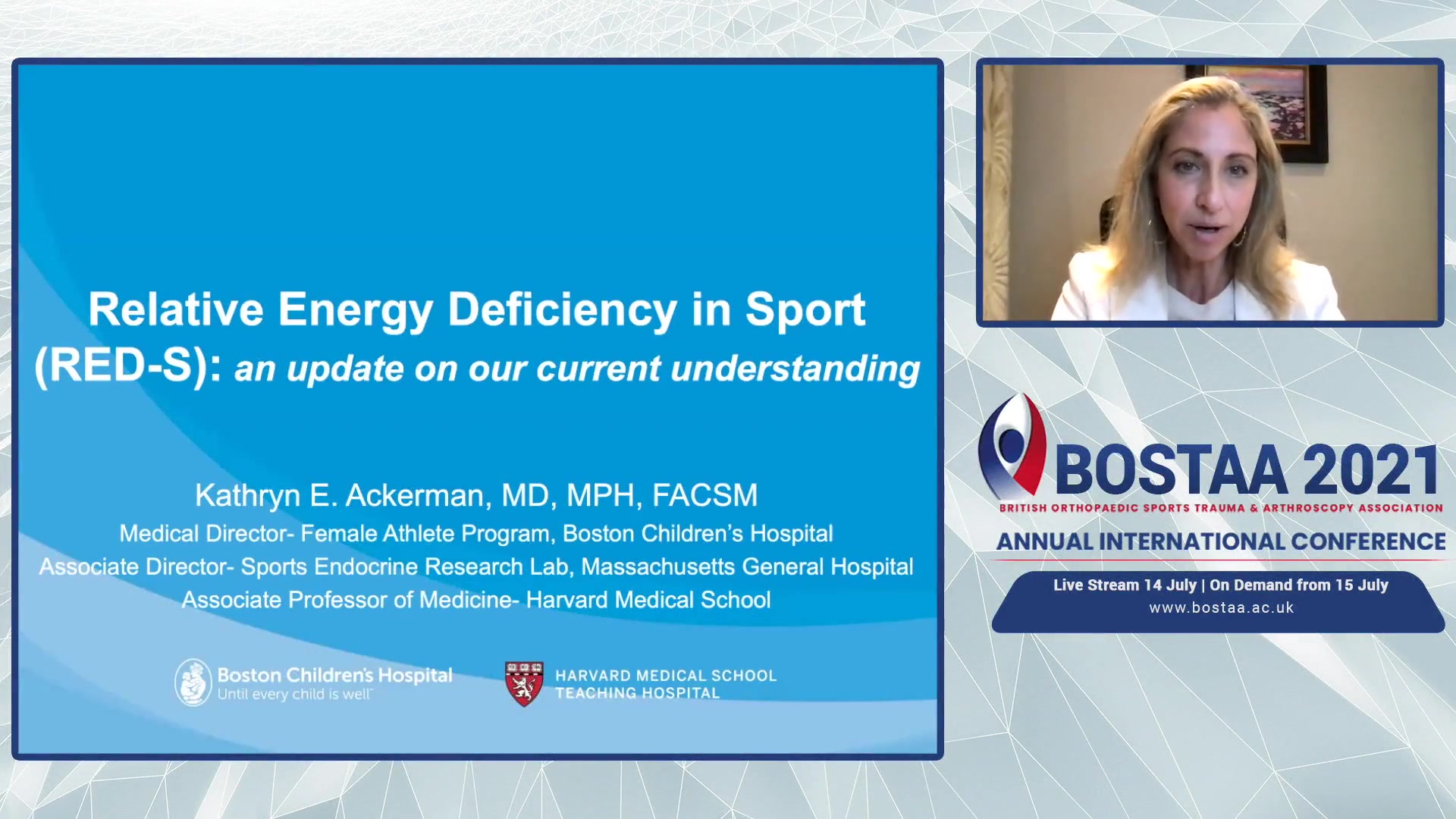Please login to view this media

- Talk
- 14/07/2021
- UK
Relative Energy Deficiency in Sport (RED-S): An Update on Our Current Understanding
Description
This presentation is centered on the concept of relative energy deficiency in sport (RED-S), specifically focusing on how it affects athletes, particularly women. Kathryn Ackerman discusses the evolution of our understanding of energy availability, initially articulated through the female athlete triad—a combination of low energy availability, menstrual dysfunction, and poor bone density. This has since expanded into RED-S to highlight its impact on both men and women, recognizing a spectrum of health and performance consequences.
Ackerman highlights various health and performance effects associated with low energy availability, including decreased endurance, increased injury risk, and negative impacts on metabolic and psychological health. She elaborates on the hormonal changes accompanying low energy states and the clinical significance of disordered eating behaviors, particularly emphasizing high prevalence rates in athletes.
The talk covers effective strategies for identifying athletes who may be at risk, including vital markers like menstrual irregularities, and discusses the need for a multidisciplinary approach involving physicians, dietitians, and psychologists in managing energy deficiency. Treatment emphasizes improving nutrition and mental health instead of simply prescribing hormonal contraception.
Ackerman also presents research findings linking low energy states to physical performance deficits, injury risk, and recovery challenges in athletes. She underlines the importance of proper screening and intervention protocols to ensure the well-being and overall performance of athletes, ultimately advocating for increased awareness and preventative measures within athletic communities.